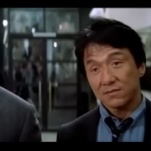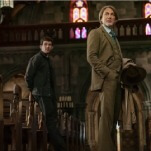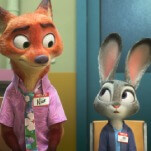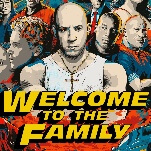At its most concrete, The Unforeseen focuses on efforts to
preserve Barton Springs, whose once-clear waters have become cloudy amid a
flurry of exurban sprawl. In the 1990s, residents passed water ordinances that
temporarily slowed the spread of new developments, but the developers'
legislative allies countered with a bill backdating environmental restrictions
to the time of a project's inception, no matter how many times it changes
hands. The bill was stalled by the veto of then-governor Ann Richards, but
quickly passed by her successor, George W. Bush. Dick Brown, the lobbyist who
drafted the bill, fairly cackles as he recalls, "The legislature burned Austin
to the ground." (Brown would not allow his face to be filmed, so the camera
focuses on his hands as he assembles a military model airplane, its nose cone
decorated with grinning shark teeth.)
On a more intangible level, Dunn pinpoints the
desire for growth as a central part of the American character. As former Austin
mayor Roy Butler points out, building a new house on virgin land is the
archetypal American dream. Author William Greider, who explains how banking
deregulation precipitated the savings-and-loan crisis, points out that growth
isn't necessarily negative, an observation Dunn illustrates with a shot of a
butterfly crawling from its cocoon. But shortly thereafter, she's filling the
screen with pictures of cancer cells. Leave it to Willie Nelson to play the
diplomat, observing that development can be "either positive or negative,
depending on your point of view." Thanks, stranger.
Although the parts of The Unforeseen dealing with the
anti-development movement are pure go-team agitprop, Dunn lends the movie a
lyrical cast by combining aerial shots of the transformed countryside with the
voice of Wendell Berry, reading from his poem "Sabbaths." With cinematography
by Richard Linklater stalwart Lee Daniel, and executive production by Robert
Redford and Terrence Malick, the movie wavers between Sundance-friendly issue
film and spiritual reverie.








































